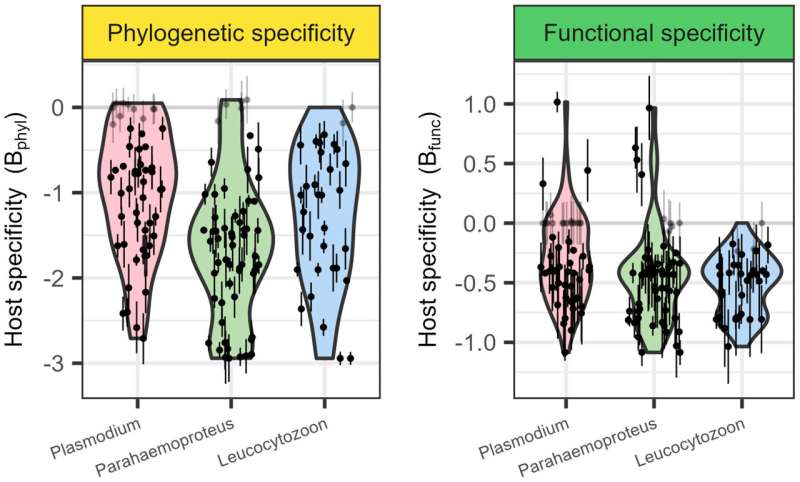A new study uncovers how parasites thrive by striking a delicate balance between specializing in certain host species and exploiting diverse communities. Parasitism is a complex ecological relationship that has far-reaching implications, from impacting biodiversity to fueling infectious disease outbreaks. This research offers valuable insights into the intricate dance between parasites and their hosts.

Exploiting Diverse Host Species
The study, published in the Journal of Biogeography, reveals a surprising finding: the prevalence of malaria-like blood parasites in birds increases with the number of species present in local bird communities. This suggests that parasites thrive when they can infect a wide range of different bird species.
According to the lead researcher, Dr. Konstans Wells from Swansea University, “This study offers valuable insights into how increased opportunities for parasites to infect a variety of host species can facilitate their spread.” The researchers gathered data on over 17,000 wild-captured birds from diverse regions around the globe, employing molecular analysis to identify the species and lineage of any blood parasites present.
The Benefits of Host Specialization
Interestingly, the study also shows that malaria-like parasites spread more rapidly when they specialize in subsets of bird species that are closely related or share similar functional traits. This suggests that parasites can also benefit from focusing their efforts on certain host species to enhance their transmission efficiency.
“At the same time, parasites can also benefit from specializing in certain host species to enhance their transmission efficiency,” explains Dr. Wells. This delicate balance between exploiting diverse host species and specializing in select groups is key to understanding how parasites thrive in complex natural environments.
Implications for Global Health and Biodiversity
The research team emphasizes that in the context of global change, infectious diseases are on the rise among animals, plants, and humans. This study highlights the role of bird migration and the introduction of invasive species in increasing the spread of parasites, even as global changes contribute to dramatic declines in wild bird populations worldwide.
“More research is needed to understand the spread of blood parasites in birds. However, we hope that our study contributes to the evidence supporting international policies on biosecurity and the protection of natural environments,” concludes Dr. Wells. “These measures are essential for safeguarding biodiversity while also addressing the negative effects of infectious disease spread in our increasingly globalized world.”
